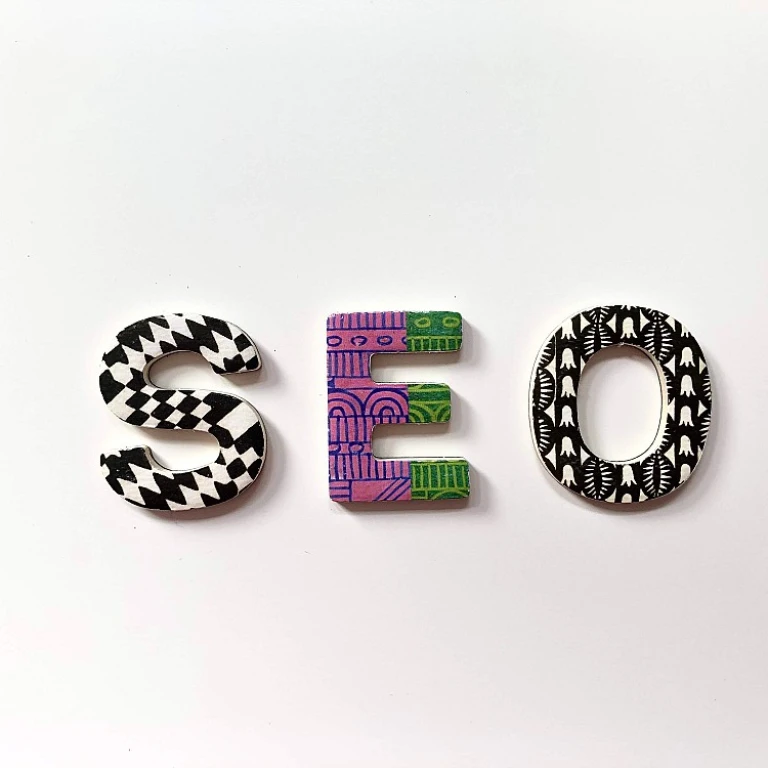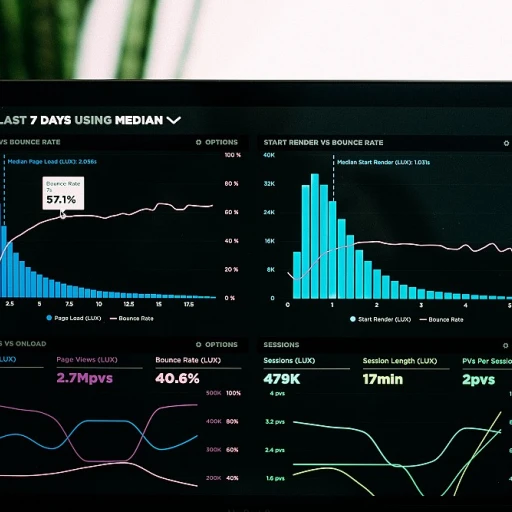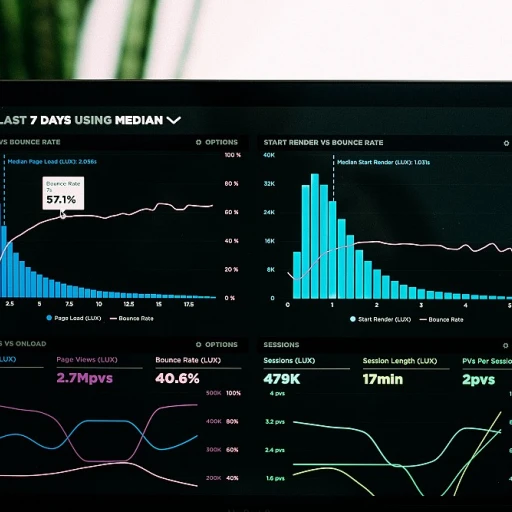Understanding AI's Role in Modern SEO
The Transformative Power of AI in SEO
In today's digital landscape, search engine optimization (SEO) is undergoing a profound transformation, primarily driven by the advent of artificial intelligence (AI). With its ability to process vast amounts of data at remarkable speeds, AI is not just a tool for SEO—it's a game changer. By providing deeper insights and automating complex tasks, AI is enabling businesses to optimize their digital presence like never before.
AI systems can analyze web traffic data and search trends to offer valuable insights into user behavior. This allows brands to tailor their SEO strategies by identifying the most effective keywords and optimizing content accordingly. Whether it's a design studio focusing on the best web platforms or a packaging design team seeking fresh branding inspiration, AI helps refine their approaches to increase visibility and engagement.
Furthermore, AI assists in enhancing brand identity. By synthesizing data from various sources, it can suggest improvements in brand design and logo development, ultimately strengthening a brand's identity in the digital sphere. This is crucial for maintaining a distinct visual identity amidst the plethora of competing brands online.
Despite its transformative potential, integrating AI into SEO is not without challenges. As we explore this in other sections, it’s essential for businesses to navigate these challenges while considering ethical implications. Nonetheless, the role AI plays in modern SEO cannot be understated. It's reshaping how we approach branding, offering new pathways for creativity and innovation in building lasting brand identities.
The Intersection of AI and Branding
Integrating AI and Branding for Enhanced Identity Design
Leveraging AI for Keyword Optimization
Harnessing AI for Enhanced Keyword Strategy
In the realm of SEO, keyword optimization stands as a critical pillar, driving traffic and ensuring brand visibility. With AI-fueled tools, the ability to refine keyword strategies has reached new heights, transforming how businesses approach this essential aspect of search engine marketing. AI aids in analyzing vast data sets with remarkable precision, pinpointing search patterns and user intent. By synthesizing information from various sources, these advanced systems offer insights that allow brands to design strategies tailored to their target audience. This precision ultimately results in more relevant keyword choices for branding and identity campaigns, setting the groundwork for successful SEO initiatives. With AI tools, the emphasis on keyword optimization shifts from merely identifying high-volume terms to a more nuanced understanding of context and relevancy. This means not only selecting keywords that resonate with the brand's audience but also considering the essence of brand identity and packaging design. Integrating related concepts such as logo, web design, and visual identity into keyword strategies enriches content and solidifies brand positioning online. AI's capacity to analyze user behavior extends to understanding preferences and trends, ensuring you are not only saving time but also staying ahead of the competition. This proactive approach lets teams optimize both the technical and creative facets of branding design, from icon creation and color palette selection to overall design branding. Moreover, by leveraging AI, businesses gain access to ecosystems that support real-time, data-driven decision-making. This capability helps marketers craft not just compelling but inspired branding communication that aligns perfectly with Google's ranking algorithms. The intelligent refinement of keywords facilitates organic growth and visibility, ultimately enhancing the brand's online presence and authority. For a more comprehensive guide on optimizing branding strategies with AI-driven keyword tools, consider exploring how a well-structured approach to social media investment multiples can further amplify your efforts.Content Creation and Personalization with AI
AI Enhancements in Content and Personalization
AI-driven SEO is revolutionizing how content is created and personalized, elevating design, branding, and brand identity to new heights. By harnessing the power of AI, brands can craft content that resonates more deeply with their target audiences, making every piece of communication more engaging. In the realm of branding inspiration and brand identity design, AI tools can analyze vast amounts of web data to uncover trends and design inspiration that align with a brand’s identity and values. This insight enables designers to create visually appealing and culturally relevant elements such as logos, packaging design, and graphic design, ultimately enhancing the overall brand identity. AI-based content generation tools are also saving teams valuable time by automating the creation of content that aligns with a brand's style guide and color palette. Such platforms make it easier for design studios to maintain a consistent branding style across all channels, from web design and website design to print materials. Moreover, by utilizing predictive analytics, AI can tailor content to meet the specific needs of different segments of a brand's audience, delivering personalized content that inspires and resonates. Whether it’s crafting personalized emails, generating packaging designs that spark inspiration, or creating visuals for social media, AI ensures that brand messaging isn't one-size-fits-all. The visual identity of a brand, with key components like logo design and animation, can be dynamically adjusted and optimized. Designers can use AI to generate and test variations of designs, identifying the best-performing options in terms of user engagement and conversion rates. This process not only elevates the brand's visual appeal but also strengthens its market position. Branding teams are further supported by AI's ability to optimize keyword strategies, ensuring that content is discoverable and aligned with branding goals. Through the insightful use of icons, circles, and animations, a brand can turn mundane data into visually compelling stories that capture the audience’s attention. In conclusion, integrating AI into content creation and personalization processes not only enriches the branding journey but also ensures that every touchpoint is optimized for engagement and relevance. This strategy not only enhances the visual identity and design branding of a company but also solidifies trust and authenticity with its audience.Predictive Analytics for Brand Strategy
Harnessing Predictive Analysis for Strategic Branding
Predictive analytics is now an invaluable asset for businesses aiming to refine their branding strategy. By employing AI technologies, companies can anticipate market trends, customer preferences, and brand perception changes, allowing for more informed decision-making. The increased accuracy and insight derived from AI-driven predictive analytics enable brand managers and designers to tailor their identity design efforts more effectively.
For designers focusing on brand identity—from logo design to visual identity—predictive analytics offers insights that guide design choices. Understanding how colors and shapes, like circles, resonate with target audiences, designers can create branding inspiration that aligns with emerging trends. This helps in crafting packaging designs and branding styles that captivate your market effectively, ensuring the brand stands out in a crowded digital landscape.
Branding teams can also use predictive analytics to save time and resources by preemptively addressing shifts in consumer behavior. Rather than relying solely on retrospective analysis, AI tools can predict the success of various branding changes in real-time. From style guides to color palettes, these advanced analytics provide a strategic edge in refining brand identity and enhancing consumer engagement.
Furthermore, predictive analytics aligns with AI-driven keyword optimization and content creation strategies by offering foresight into which branding elements will be most effective across diverse web design platforms. From the logo icon seen in online branding assets to animations that bring a brand’s story to life, all elements must communicate a cohesive message.
Design studios leveraging AI can thus ensure that their brand design conveys the right tone and identity across digital touchpoints, crafting a seamless visual identity. The ability to forecast brand interactions and consumer responses makes predictive analytics a game-changer for strategic planning.
Challenges and Ethical Considerations
Navigating the Complex Landscape of AI in Branding
While AI-driven search engine optimization offers significant advantages in enhancing a brand's visibility, it also presents unique challenges and ethical considerations that businesses must navigate carefully. With advanced AI tools becoming a crucial part of design and branding strategies, companies have to maintain a delicate balance between leveraging technology and preserving the essential human touch that defines their unique brand identity.
One of the foremost concerns is the potential erosion of creative identity. Automated processes might streamline packaging and logo design, but over-reliance on AI tools can sometimes result in homogenized outputs that lack distinctiveness. Companies might find that their designs become overly formulaic, thereby losing originality. Brands should therefore strive to use AI as a source of inspiration while ensuring that the final output resonates with their core principles and values.
Moreover, sophisticated AI capabilities in animation and icon creation offer new opportunities but also raise questions about authenticity. The AI's ability to generate compelling visual elements from pre-existing patterns challenges designers to enhance their skills continuously to stay ahead. Creative teams should employ AI as an aid rather than a replacement, ensuring that their unique human touch isn't lost amidst the technological advancements.
Ethical use of data is another critical aspect. With AI platforms analyzing user behavior to tailor content personalization, transparency about data usage becomes essential. Brands should prioritize ethical considerations in their data collection practices to maintain trust with their audience. This trust is crucial for developing a meaningful brand design and building a lasting relationship with consumers.
Ultimately, while AI offers powerful tools that assist in creating a cohesive visual identity through refined graphic design and identity design, it is the responsibility of the design studio or company to ensure these advancements are employed thoughtfully and ethically. Staying true to a brand's authentic identity while harnessing the efficiency and creativity AI brings can significantly enhance a brand's impact and resonance with its target audience.













